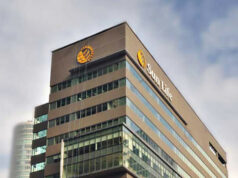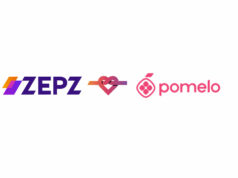Moody’s affirms LANDBANK credit rating
MOODY’S Investors Service affirmed its credit rating for Land Bank of the Philippines (LANDBANK), citing its “healthy” metrics on solvency and liquidity.
Separately, President Rodrigo R. Duterte said in an executive order (EO) that LANDBANK will have no dividends to the national government from its net earnings for calendar year 2018 to support its liquidity and in the interest of the economy.
In a statement on Thursday, Moody’s said it has affirmed LANDBANK’s domestic and foreign bank deposit ratings of Baa2 /P2, a notch above the minimum investment grade and in line with the country’s credit rating. It also assigned a “stable” outlook to the rating, indicating this is likely to be maintained at its level.
“The affirmation of LBP’s ratings is driven by its healthy solvency and liquidity metrics,” Moody’s said in a statement.
“It also benefits from an expectation that it is
government-backed, given that it is fully owned by the government and fulfills government policy objectives,” it added.
However, Moody’s said the coronavirus disease 2019 (COVID-19) outbreak could pose risks to the lender’s growth outlook and asset quality.
“We regard the coronavirus outbreak as a social risk under our ESG (environmental, social and governance) framework, given the substantial implications for public health and safety,” Moody’s said.
The debt watcher said LANDBANK’s asset quality continues to be healthy as its gross non-performing loan ratio stood at 2.5% as of end-September last year.
“While this is up from 1.3% at the end of 2018, the increase was largely driven by one large corporate exposure that most of the large banks in the system are exposed to,” it said.
Moody’s said economic growth this year will be affected by the virus outbreak, which could pose risks to LANDBANK’s assets and growth.
Despite this, Moody’s said the lender’s profitability will continues to be stable, while internal capital generation will provide sufficient support for loan growth.
“While an increase in credit costs may create some pressure, Moody’s expects this to be offset by higher NIMs (net interest margin) on account of increasing loan-to-deposit ratios,” the credit rater said.
Moody’s noted government funding and liquidity continues to be LANDBANK’s main strength as government-related deposits account for around 74% of the bank’s deposits.
“The bank is also highly liquid, and has the lowest loan-deposit ratio among rated Philippine banks, at around 49% at end September 2019,” it added.
Meanwhile, Moody’s downside risks from LANDBANK’s plan to acquire United Coconut Planters Bank (UCPB) which is “undercapitalized” and could put pressure on LANDBANK’s capital if approved.
According to the credit rater, LANDBANK could get a rating upgrade if there will be an improvement in the timeliness and transparency of its financial reporting and a decline in the concentration of credit from individual borrowers.
On the other hand, its rating could be downgraded if the proposed UCPB acquisition leads to a large reduction in capital ratios below LAND BANk’s current levels.
DIVIDENDS
Meanwhile, Mr. Duterte said in EO 109 that the downward adjustment in the declared dividends was recommended by Finance Secretary Carlos G. Dominguez III to boost “the viability and mandate of the bank, its liquidity, capital position and medium-term plans and programs, in the interest of national economy and general welfare.”
The EO cited Republic Act. No. 7656 which requires all government-owned or controlled corporations (GOCCs) to remit at least 50% of their annual net earnings in forms of cash, stock, or property dividends to the national government.
According to Section 5 of this law, the president can adjust the percentage of annual net earnings declared by a GOCC in line with economic interest and general welfare, upon the recommendation of the finance secretary. — L.W.T. Noble



